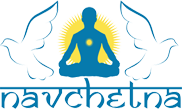
There are no shortcuts to recovery. Overcoming addiction means understanding why somebody abuses alcohol or drugs in the first place. A holistic approach with focus on the “Whole Person Recovery” including physical, mental, emotional, social and spiritual health with life style modification and new skill development is our goal. Our multi-dimensional approach to recovery ensures clients and families to effectively work through past conflicts that contribute to substance abuse and relapse. Our team understands addiction and we bring that knowledge to our work, combining it with cutting edge research,evidence based treatment models and family and community support.
Every person’s needs are unique and so is our approach to the case. Our residential program’s length of treatment is based on the individual needs of our clients. By creating a supportive, open and productive environment we work with one client to identify the factors contributing to their substance dependence and then map out a practical path to recovery. We do this in our 20-bed residential set up. In addition to this our center has an environment that promotes skill development, emotion management, relationship building and relapse prevention strategies.
Phase I
Identification
Intervention
Phase II
Induction
Detoxification
Phase III
Rehabilitation and
Recovery Maintenance
Restoration of Health
Change in Belief and Self Concept
Modifying Personality Traits and Lifestyle
Behavioral Treatments
- Cognitive-behavioral therapy
- Motivational Enhancement Behavioral Therapy
- Martial and Family Counseling
- Brief Interventions
Also known as addiction counseling , behavioral treatments involve working with a professional to identify and help change the behaviors that leads to addiction and abuse. Behavioral treatments share certain features, which can include
- Developing the skills needed to stop or reduce drinking or substance abuse.
- Helping to build a strong social support system.
- Working to set reachable goals.
- Coping with or avoiding the triggers that might cause relapse.
Medications
Mutual – Support groups
Dual Diagnosis Co-Morbid program
Family Education and Councelling
Recovering Community
Other key supportive measures are
- Identify risk of relapse.
- Foster a sense of purpose in life.
- Encourage interpersonal bonds and relationships.
- Coming back to society and family.
- Enrichment programs that help then in all areas of their life.

